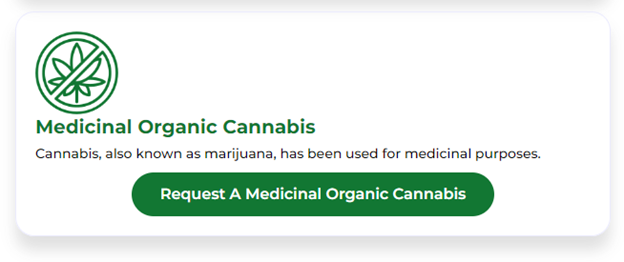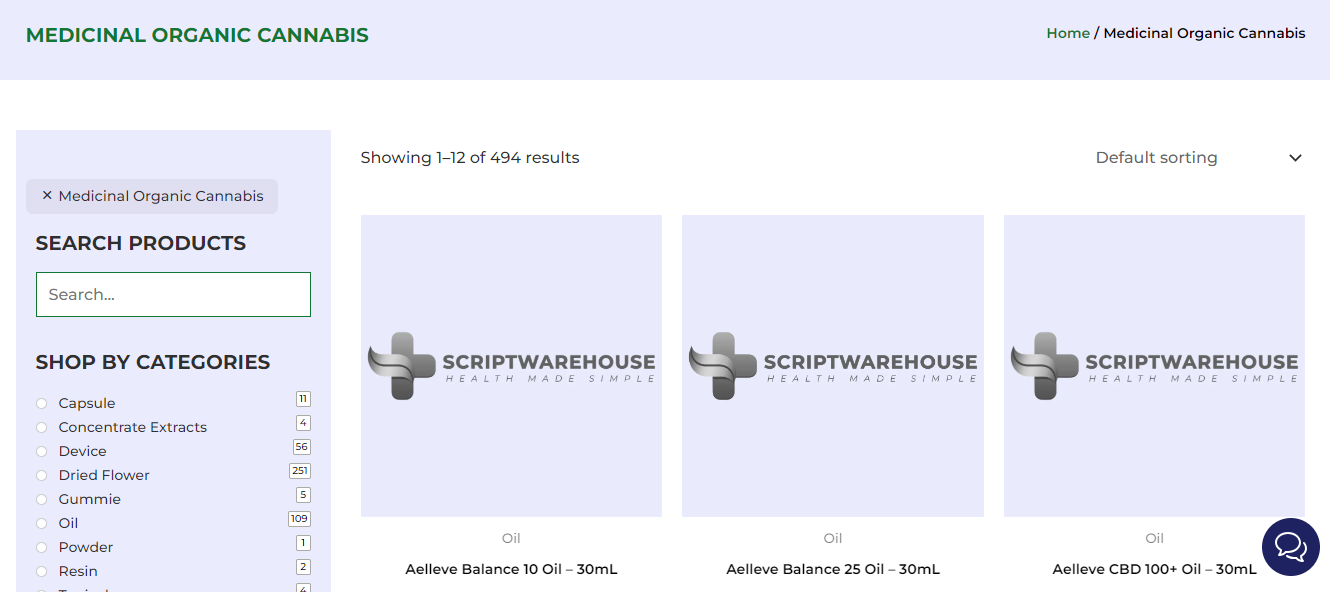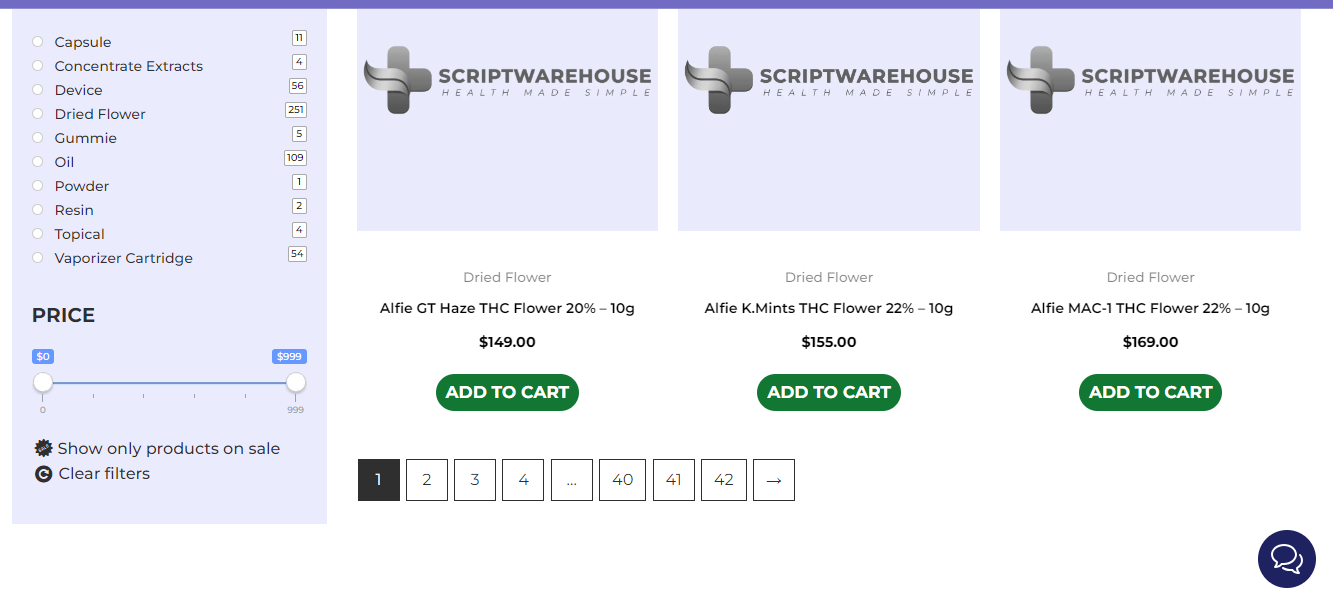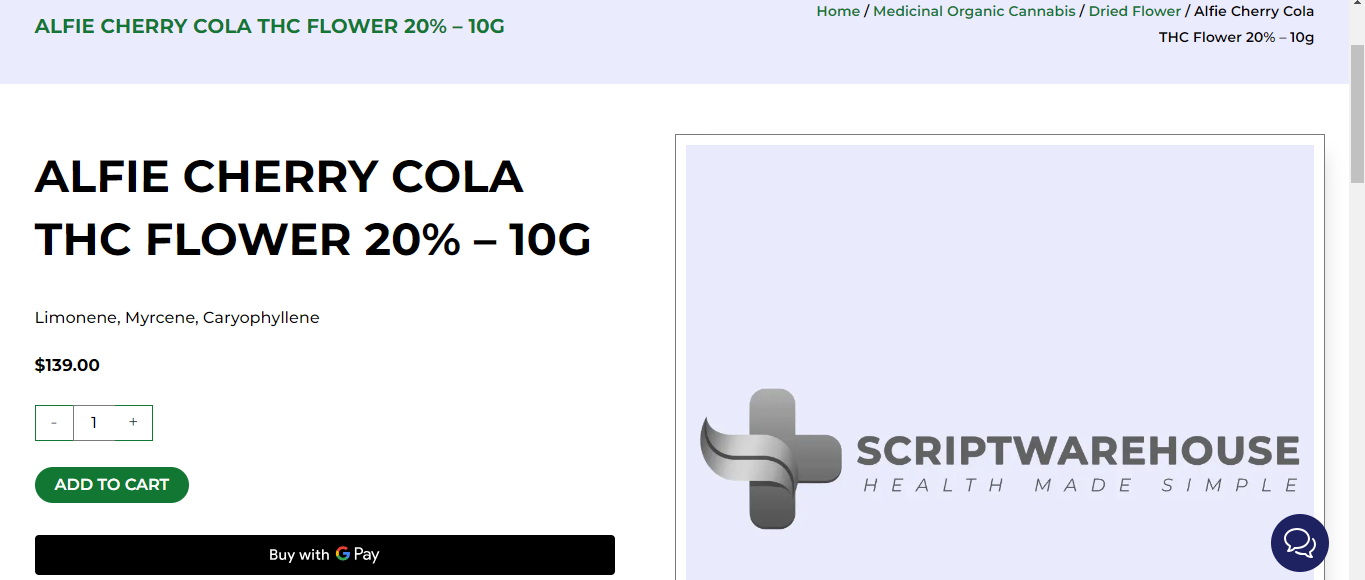A bizarre medical job ad took us to a telehealth site with an invitation to ‘Request A Medicinal Organic Cannabis’, prescription optional.
Four years after telehealth took off, rogue operators are taking advantage of it in increasingly daring ways.
Unlike a bricks-and-mortar general practice or pharmacy, the barrier to entry for a digital-only clinic is relatively low.
Startups like Eucalyptus – which owns Pilot, Kin, Juniper, Software and Compound – and Mosh are backed by venture capital and have become almost synonymous with the idea of telehealth clinics.
This isn’t always a positive.
As The Medical Republic has reported on at length, the asynchronous and fully-online nature of consults on these platforms make them vulnerable to patients lying about things that would be easily observable face to face, like their weight.
Since that time, many of these platforms have added requirements for patients to upload full-length pictures of their body for weight loss drug consultations.
But some new online clinics have gone in the opposite direction entirely – and make Eucalyptus look impeccably responsible and ethical by comparison.
It started with an ad
Ezyscripts first came to TMR’s attention because of a job ad posted in Australian Doctor.
It offered to pay GPs $25 per script and touted the clinic’s flexible hours, diverse range of patients and “strictest standards of ethics and confidentiality”.
Outside of what seems like an inappropriate incentive for doctors to prescribe – one that is apparently not illegal, according to the Department of Health and Aged Care – there were other red flags.
The ad copy itself verged on nonsensical.
“It has come to our attention that our website lacks the functionality to facilitate electronic prescriptions,” it reads.
“In order to bridge this gap and provide a more streamlined services for our customers, we have decided to bring on board a doctor who can prescribe medications through our online platform.”
The advertisement signed off with the name and phone number of a discount chemist franchise located in Western Sydney.
AusDoc’s jobs board is self-service, and medical recruiters can sign up and advertise a job without the company checking whether it is legitimate.
After TMR sent through queries, the ad was removed while Australian Doctor Group conducted a full review.
Weirder still, the web address given for the telehealth clinic, ezyscripts.com.au, redirected to a different URL entirely: scriptwarehouse.com.au.
Script Warehouse and Ezyscripts are one and the same – not only does the Ezyscripts URL redirect there, but a WhoIs domain search confirms that both sites were registered to the same email address.
If the job ad was a red flag, the Script Warehouse website was a flashing siren.
Script Warehouse, ScriptWareHouse or Script Ware House?
On the surface, Script Warehouse looked as legitimate as any other telehealth clinic.
It purported to use real, Australian-registered and insured doctors, store data safely and be integrated with a network of pharmacies primed for home delivery.
There were even slick-looking patient testimonials and no fewer than four company logos under the heading “healthcare partnerships”.
The contact us page introduced the three Script Warehouse employees: a clinic director, a pharmacist and a doctor.
The pharmacist and the doctor are real, qualified clinicians registered with AHPRA to work in the Western Sydney region.
But scratch below the surface even a tiny bit and it gets flaky.
TMR counted four different spellings of Script Warehouse – Script WareHouse, Script Warehouse, ScriptWareHouse and Script Ware House – across the website, along with numerous grammatical errors. Paragraphs of text seemed to be copied and pasted into incorrect columns.
The supposed patient testimonials praising the convenience of Script Warehouse were all attached to stock names, photos and job titles ripped straight from a website content block library.
There is no evidence that any of the four companies listed under “healthcare partnerships” exist.
Related
Then there’s the straight-up illegal part
Under a banner asking how Script Warehouse can help you today is a list of the services they offer, and a corresponding button for one to request each item.
It’s handy.
Looking for a medical certificate? Click the “request a certificate” button.
Looking for a specialist referral? There’s a “request a referral” button too.
Looking for a blood test? You got it, the “request a blood test” button is right there.
Looking for a medicinal organic cannabis? Wouldn’t you believe it, there’s a “request a medicinal organic cannabis” button right there on the home page.

The import, export, manufacture, advertising and supply of medicinal cannabis – or any other prescription medicine – is regulated under the Therapeutic Goods Act 1989.
Any content intended to directly or indirectly promote the use or supply of the product to the public very much contravenes this rule.
In its recent crackdown on cosmetic surgery, the TGA went as far as banning terms like “anti-wrinkle injections” because they may draw the audience’s mind to prescription-only products.
Pressing the “request a medicinal organic cannabis” button leads to 42 pages worth of cannabis products that you can add to your virtual cart without providing evidence of a prescription.
Another link accessible from the home page advertises a weight-loss kit.
Clicking through this one takes the user to a page with options to buy Ozempic (semaglutide, Novo Nordisk), Mounjaro (tirzepatide, Eli Lilly), Trulicity (dulaglutide, Eli Lilly) or Saxenda (liraglutide, Novo Nordisk).
It asks customers to check a box certifying that they’re not allergic to the drug, pregnant, diabetic, suffering from acute pancreatitis or “dehydration”.
But there’s no request for a script at any stage.
At the price of $199 per month, Ozempic from Script Warehouse comes in cheaper than telehealth company Juniper’s weight loss package subscription of $375 per month, which typically involves compounded semaglutide.
It’s unclear just what patients would be receiving, given that Ozempic has famously been in shortage for more than two years, and the other three medicines have faced similar supply issues.
What makes this especially odd is that Script Warehouse does actually have an online consult form for patients who want a prescription for Ozempic, with a detailed questionnaire not dissimilar to those at other online clinics.
After adding the Ozempic to their cart, customers can go through with the purchase without being asked to provide a prescription.
We can say this with certainty because this is what we did.
Script Warehouse ultimately refunded our money and cancelled the order with no explanation. Given that TMR did not intend to use the drugs, and needed only to verify that we could buy Ozempic without talking to a doctor or getting a prescription, we would have taken steps to cancel the order before it arrived in any case.
It is possible that Script Warehouse did the same for every customer who purchased a therapeutic good without a script – but it’s worth noting that the TMR order was placed after the site had been closed for “maintenance”.
TMR was only able to access it at that point because it allowed customers who had already created accounts to sign in.
The site has been undergoing “maintenance” since the start of May, around the same time that TMR sent detailed questions about Script Warehouse to the TGA.
It has not come back online since.






We still have questions
The biggest question is: if it was a scam to sell real or counterfeit products over the internet, why advertise for a doctor on a respected and widely read medical media website?
Other aspects of the Script Warehouse site also indicate that it was intended to be above board, like the inclusion of an asynchronous consultation form.
The doctor and pharmacist listed on the site are also both AHPRA registered health professionals with no conditions on their practice.
Business records reveal that the pharmacist and the clinic director had been in business together at least once before, at an address registered to another pharmacy in Western Sydney.
The doctor, who only has general registration, studied his primary medical degree in Australia.
It’s even possible that Script Warehouse was not fully aware of the laws against advertising therapeutic goods and believed their site was compliant, and that the ability to easily order prescription medicines was a good-faith error in building the website.
But weighted against these factors are the fake reviews and partnerships and the fact that there was no point in the purchasing process where we were asked to provide a valid prescription.
Script Warehouse did not respond to requests for comment.
Where do the regulators come in?
When it comes to regulating a site like Script Warehouse, it’s difficult to work out which agency has jurisdiction over which parts.
The TGA handles all matters related to the advertising of therapeutic goods as compliance risks, which it approaches with a “benefit of the doubt” principle.
It typically only takes enforcement action in situations where it determines there has been deliberate non-compliance or criminal intent.
This is distinct from opportunistic non-compliance, which is characterised as limited or poor compliance systems and management that is not compliance-oriented.
In these situations, where management is open to becoming compliant, the main regulatory action taken by the TGA is to “correct behaviour”, rather than bring charges.
When asked whether the fact that Script Warehouse requested Medicare card details put the site under DoHAC’s jurisdiction, it told TMR that there was no indication that patients had been illegally bulk billed.
“Private healthcare providers can charge privately for services that are ineligible for MBS rebates,” a spokesman says.
“Service providers are still expected to align with relevant clinical guidelines and professional codes of conduct which are enforced under state and territory laws in Australia.”
AHPRA, meanwhile, would be unlikely to get involved unless someone were to make a specific complaint relating to a practitioner with Script Warehouse.
“AHPRA and the National Boards are responsible for regulating registered health practitioners in Australia,” a spokesman for the regulator tells TMR.
“We do not regulate products. Concerns about health-related products, including the advertising of prescription only medicines, should be directed to the Therapeutic Goods Association.”
If Script Warehouse were to have sent out product to patients without a prescription, it could have also potentially run foul of state-based poisons legislation.
Under the Poisons and Therapeutic Goods Act 1966, the maximum penalty for supplying a restricted substance without a prescription, other than by wholesale, is two years in jail.
The Australian Competition and Consumer Commission could also potentially be brought into the melee if someone were to report Script Warehouse for its fake testimonials.
Later this year the Australian Commission on Safety and Quality in Health Care will release a set of standards for virtual care.





